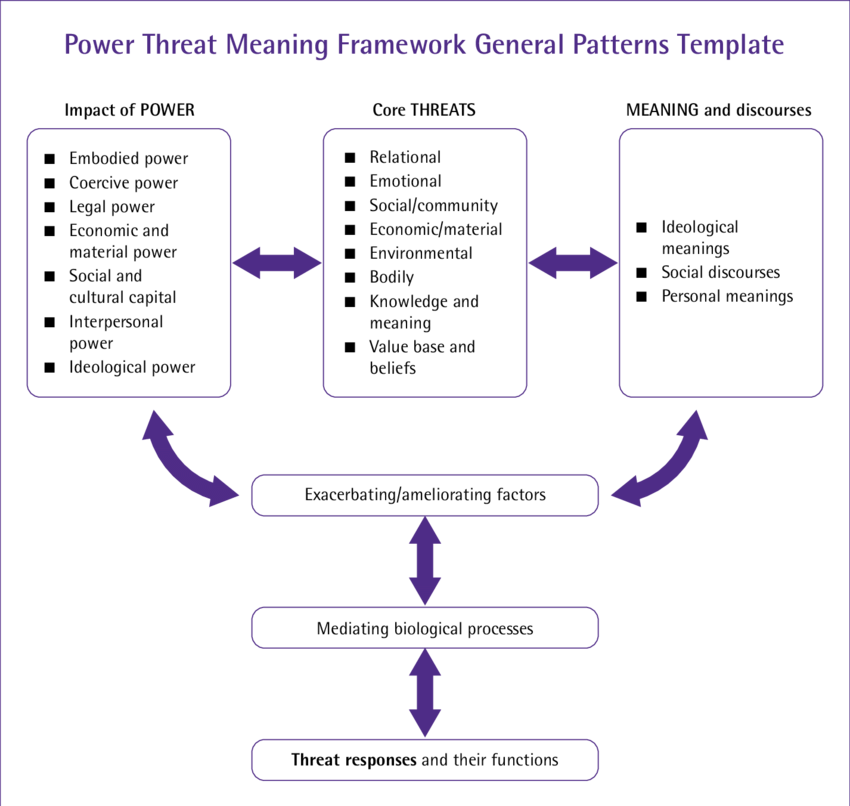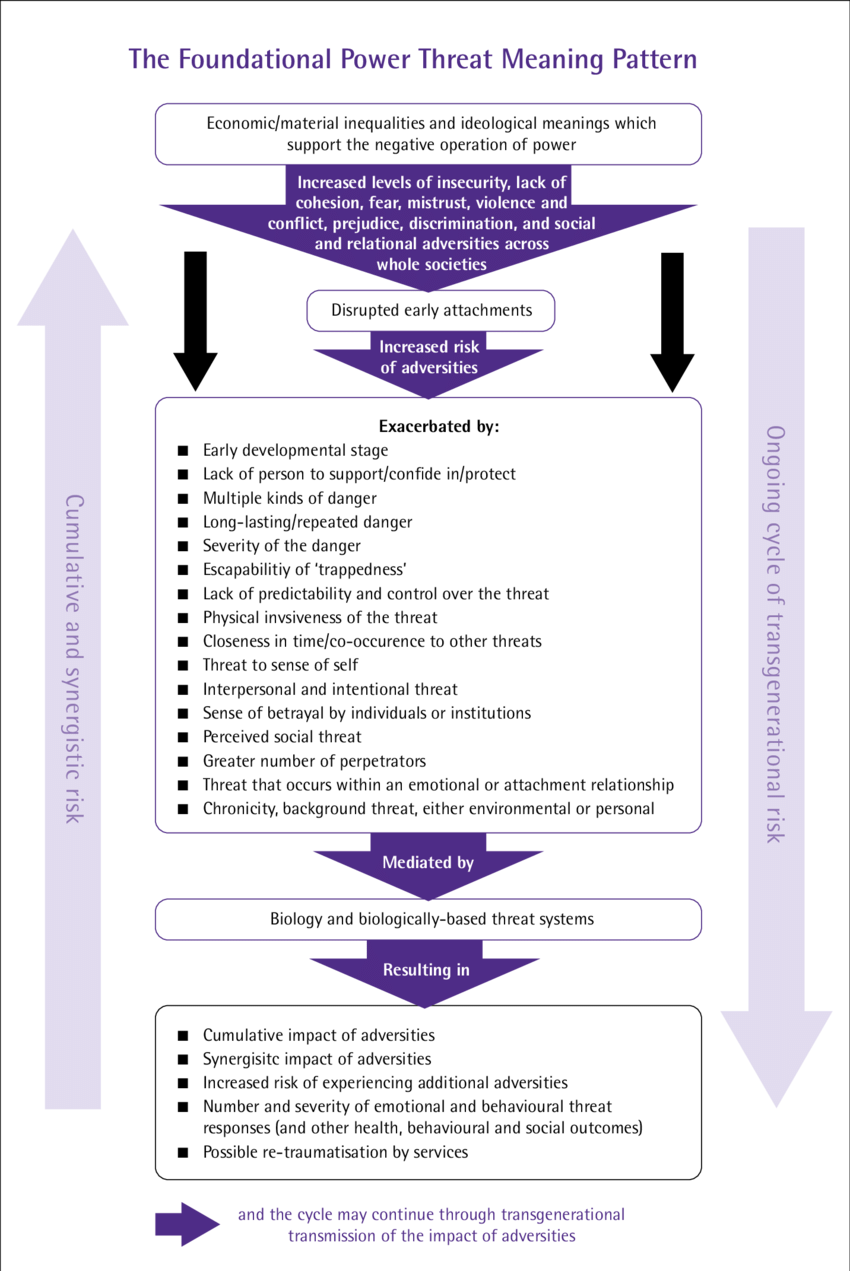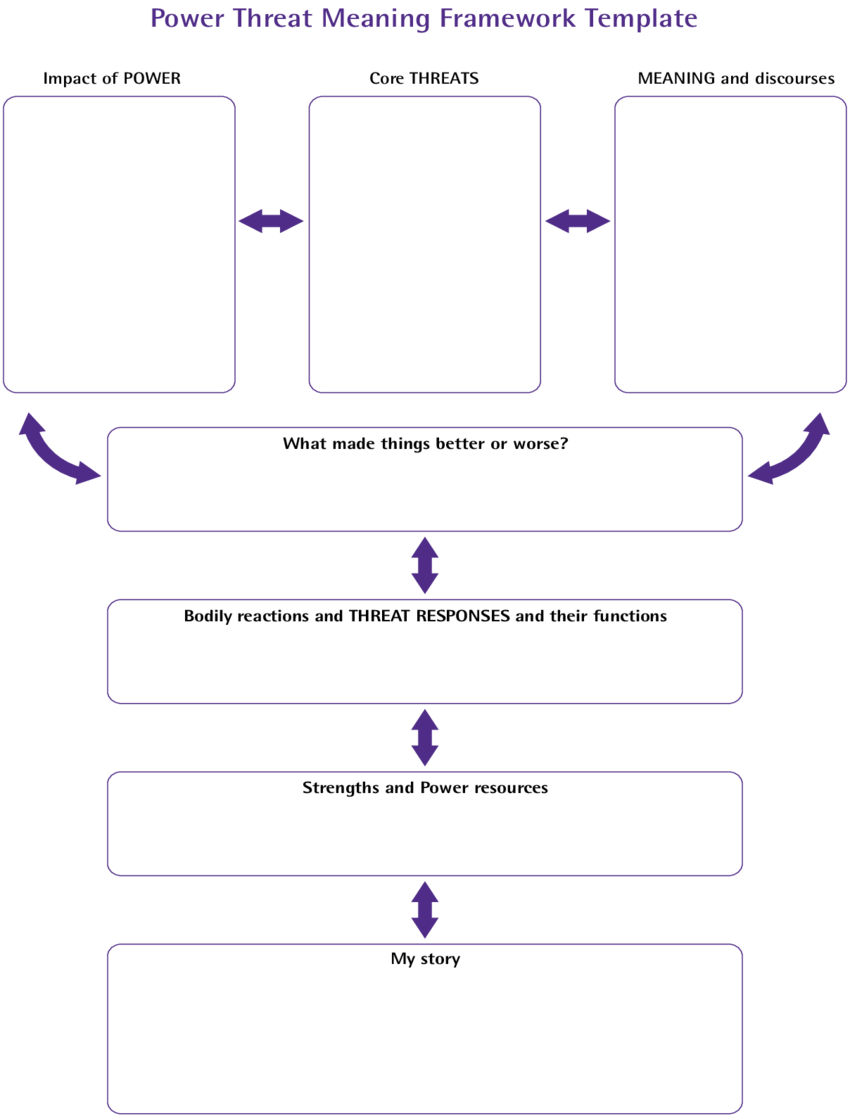Can we replace the biomedical questions such as “What is wrong or dysfunctional?” or “Which diagnose/s, illness/es or disorder/s do you have?” (followed by a list of symptoms from the diagnostic criteria) with Stories about challenges, possibilities and meaning of our lives?
▾ The Power Threat Meaning Framework PTMF
In 2018, The Division of Clinical Psychology of The British Psychological Society issued a non-diagnostic system called The Power Threat Meaning Framework.
Using modern scientific psychological and sociological knowledge along with recent biological research, it outlines an alternative and an improvement to traditional models of mental health and distress based on psychiatric diagnoses. It sees the symptoms as patterns of how people respond to negative impacts of power, that is, patterns of meaning-based responses to threats.
▾ Importance for Psychosystemic counseling
This inspiring Framework carefully and thoughtfully maps both the Inner World and the Outer World, with crucial elements to employ in the counseling of psychosystemic type.
Impacts and messages from wider society often induce feelings of shame, self-blame, isolation, fear and guilt. Even such difficult experiences, with the adequate psychological support, in addition to the sociopolitical critique of such system, can get us a new understanding and a sense of direction. We can gain agency to transform ourselves and our surroundings, carefully following our capacities and organising support.
▾ Our challenges and hurt - and - our awareness and agency
Instead of diagnoses, we can tell Our Stories. Those are our response patterns for surviving exploitation, oppression, violence and abuse, for coping with inadequate housing, healthcare and work conditions, for living in a war or running away from a war, for surviving exclusion, shame and coercive power.
Addressing traumatic experiences can be frightening and we should do it very caringly. It has a purpose – it paves new pathways to transform painful experiences into a deeper personal and social awareness and agency.
▾ Questions to help tell Our Stories
All of these questions can apply to individuals, families or (social) groups:
- What has happened to you? -- How does power operate in your life?
- How did it affect you? -- What kind of threats does this pose?
- What sense did you make of it? -- What is the meaning of these situations and experiences to you?
- What did you have to do to survive? -- What kinds of threat responses do you use?
▾ Your Personal Story
You have all kinds of skills and resources, and you can pull all your experiences, ideas and responses together into your story, your personal narrative. Two further questions can help with it:
- What are your strengths? -- What access to power resources do you have?
- What is your story? -- How does all this fit together?
▾ Our Communal Story
I would personally add one more line of questions related to Our Communal Narratives:
- What are our similarities, mutual and combined possibilities, resources and strengths? -- What is Our Collective Story? Which kind of power can we build together? What can we change together? What do we need to build our communal agency?



